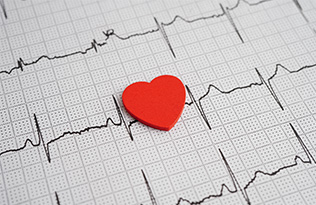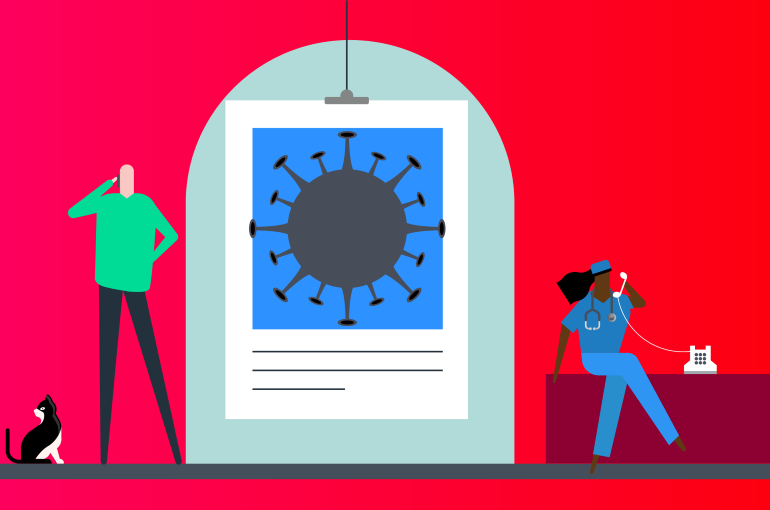
How does Covid-19 affect your heart?
Find out how Covid-19 can lead to conditions such as blood clots, heart damage, palpitations and high heart rate.

The BHF has played a crucial role in providing patients and the public with reliable, accurate and up-to-date information about Covid-19 and heart and circulatory disease.
We created a Coronavirus Hub on the BHF website to provide up-to-date information to patients, the public and healthcare professionals. Between March 2020 and May 2021 we recorded over 6 million users and more than 9 million unique page views.
The type of information available ranges from answers to frequently asked questions, such as a Q&A on the coronavirus vaccines, to more in-depth articles, such as an overview of current and potential treatments for Covid-19 and what this could mean for people with heart and circulatory disease, to ‘behind the headlines’ articles examining the evidence behind news stories about coronavirus. Information about the vaccine, including Getting your second Covid-19 vaccine: what you need to know, has been some of our most popular content.
We created and adapted our content based on what people needed – information we gathered from on-page surveys, calls and emails to our Heart Helpline, search engine data and many other sources.
Our on-page surveys showed that 90% of respondents felt more able to cope and 88% felt more confident in dealing with their condition as a result of using our resources.
Our Heart Helpline, where people can get information and support from BHF cardiac nurses, received more than 21,000 calls and almost 6000 emails between March 2020 and March 2021, with contact peaking at four times its normal level during the first national UK lockdown. Information available on the Coronavirus Hub was also updated based on Helpline queries.
In March 2020, it began to emerge that heart attack admissions were starting to drop in the UK and other countries. While continuing to monitor hospital data, the BHF worked with the British Cardiovascular Society to survey 167 cardiologists across the UK to understand their experiences of heart attack admissions in their hospitals. Their responses backed up the emerging data - 84% said the number of people coming to their hospital with a STEMI heart attack (the most serious type) fell after the first national lockdown started.
In April 2020, the BHF initiated a media campaign to highlight the issue and urge people with heart attack symptoms to call 999. BHF Associate Medical Director Dr Sonya Babu-Narayan said: “The majority of cardiologists we surveyed believed that people were mostly afraid to visit hospital due to fears of being exposed to the virus, and many said people were worried about being a burden on the NHS. These insights and the data our response group collated provided us with a platform to communicate our concerns that many people were putting their lives at risk by delaying calling 999 or seeking medical help they needed. Heart attacks don’t stop for a global pandemic and we needed to put people’s minds at ease – we’ve been relentless in spreading the message that the NHS is still open to treat people with symptoms of a heart attack.”
In July 2020, a research study part-funded by the BHF showed that admissions for heart attack rose sharply following this campaign, potentially meaning lives could have been saved as a result. We are continuing to highlight the importance of accessing potentially life-saving care for heart and circulatory diseases, and supporting calls for the Government to increase investment in the NHS to help tackle the backlog of people awaiting care due to the effects of the pandemic.
First published 1st June 2021